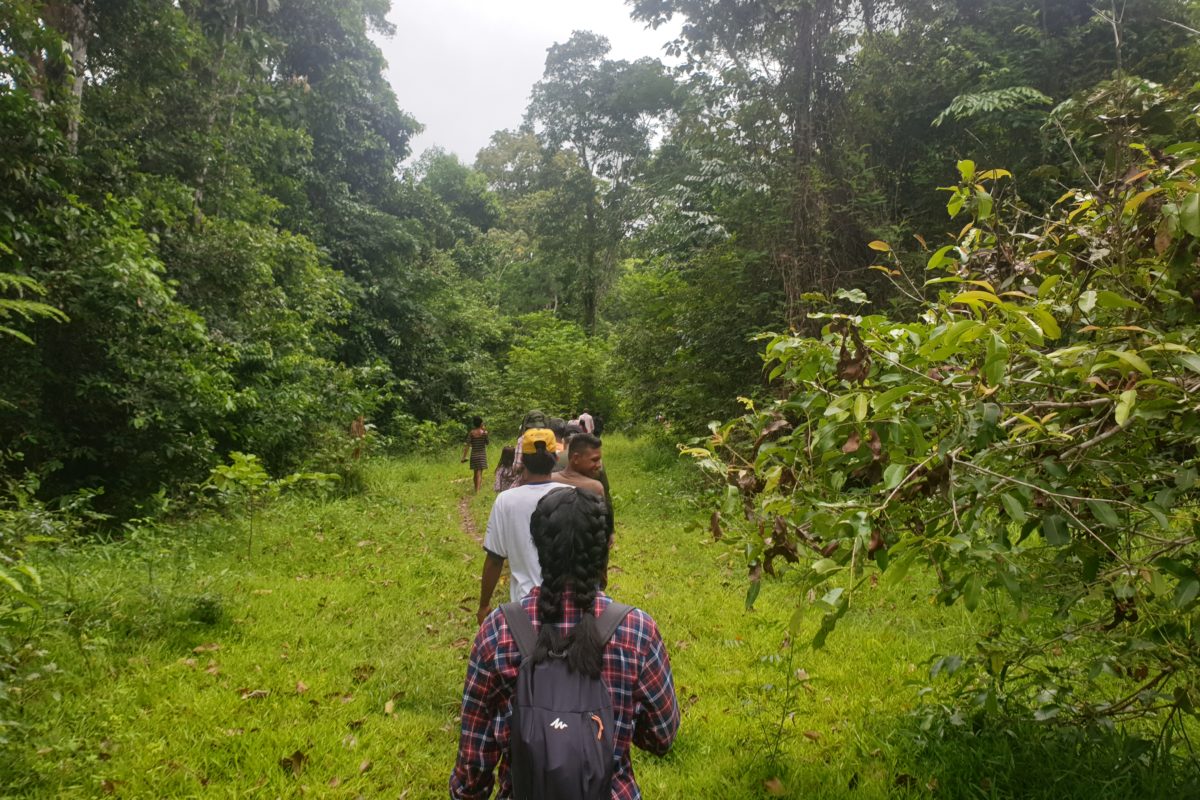“This experience taught me so much more than books could offer” – reflections from Alejandra Leon and Roksana Rotter about their participation in a research project in the Amazon Forest.
 The community of Sitio Fortaleza in the Mamirauá Reserve, Brazil. Photo: own source
The community of Sitio Fortaleza in the Mamirauá Reserve, Brazil. Photo: own source
Alejandra Leon and Roksana Rotter, master students at Linköping University joined the project “Sustainable management of Amazon Forest: a win-win for resource utilization and climate mitigation” in October 2022. They shared their thoughts on the participation, reflecting on the importance of interdisciplinary research, collaboration with forest-dependent communities and caring for people and the environment.

Roksana Rotter
It was a lifetime experience and a privilege to be a part of this project. I am very grateful that my professors decided to give me this opportunity to accompany them and travel with them to Brazil. This experience taught me so much more than I could have learned in a theoretical course at the university. The experience of being on-site, getting to know the area, the project and the people gave me a complete picture of reality that books cannot offer.
Now I understand the social and natural science connections regarding the project more clearly, as well as the relevance of the project. During the field trip, there were extreme droughts in the area, due to climate change. It was one of my first times feeling the impact of the climate crisis, yet the local communities have to deal with these impacts on a daily basis. That is why scientific knowledge is essential in order to find answers on how to mitigate climate change.
We were able to get an insight into the possible future profession of a researcher. It was exciting to see all the things that had to be organised and considered in such a project. From documents like the ethical permission to work with the communities, to adapt to circumstances such as changing plans due to external conditions.
Further, getting to know the communities was the highlight of the trip. Seeing how they live, learning from them, understanding their problems and being warmly welcomed by them was an unforgettable experience. One man said to me: “I don’t understand you and you don’t understand me, but we can talk with our hearts”.
From my experience in Brazil, I would now like to emphasise the need for interdisciplinary science and the involvement of local populations in the research process. In my eyes, this should be the only way to produce knowledge.
Alejandra Leon
My experience in the Amazon, in the Mamiraua reserve, was more than seeing impressive landscapes and exotic animal species – which is remarkable – but luckily, it was beyond that. I got to meet people and families who live there, who can call the forest their home. Those families are already adapting to the changes in climate, forever. But now, because of our disregard for many activities around the world, they are also struggling for the preservation of their environment. An environment that is being degraded slowly by everyone else around the world, but not those people who get to live with the consequences.
Being part of a cross-disciplinary project such as this one makes me realize how enriching development research is when different disciplines talk to each other and respect and empower local knowledge. In this case, seeing the natural science part with all the sampling and the hard work behind this project. From our social dimension perspective, being able to talk with the communities and getting to know them, is just such an amazing opportunity to open our understanding more into the idea that all we need to care to positively impact in this area. Care for the trees, care for the animals, care for all the biodiversity existing there, and more importantly, care for the people (and their knowledge) who live there and have been taking care of something so precious like the Amazon region. People who have such a close connection with nature. In the end, if we do not care now, then we have no right to complain later.
I feel so grateful for having such an experience, and for acknowledging more than ever that science can connect with people in such incredible ways, if we just care enough for it to happen.

Written by Roksana Rotter, intern at SweDev. Edited by Alice Tunfjord.
